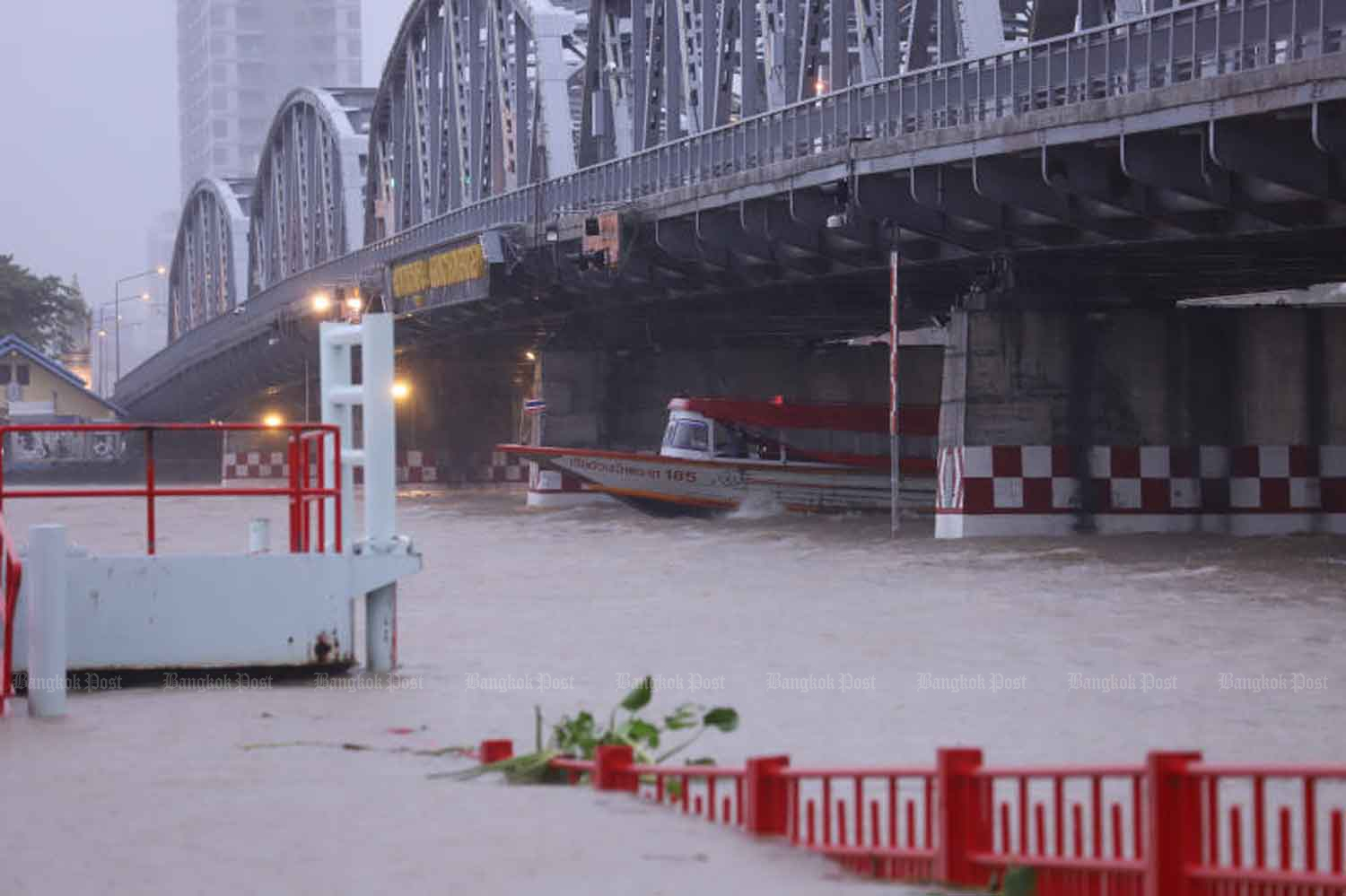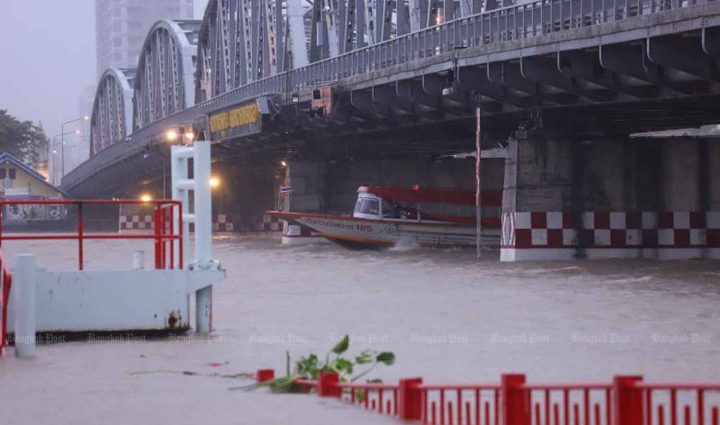Bid to stop Charoen Krung Road flooding

The Bangkok Metropolitan Administration (BMA) is stepping up efforts to prevent possible flooding along Charoen Krung Road and nearby areas.
Krit Damrongsantitham, a civil engineering technician at the Sathon district office, said on Thursday that City Clerk Khachit Chatchawanit had instructed the BMA’s Public Work Department and his district office to monitor the water volume of the Chao Phraya River.
The area, which includes the Fish Marketing Organisation on Charoen Krung Road, is prone to flooding, reportedly caused by runoff from the North. To mitigate the risk, officials aim to prevent floods along the road’s residential and economic zones.
First built during the Rattanakosin era, it ranks as the oldest road in Bangkok and runs along the river. It also runs past many landmarks, from the Grand Palace to Chinatown and the south of Bangkok.
In the past five days, the area has been submerged, so that monitoring will continue for the rest of the month, Mr Krit said, adding the river must be able to handle runoff from the North.
He said piles of sandbags had been set up around the Fish Marketing Organisation, which is in one of 76 flood-prone areas, to prevent water and sewage from affecting it.
Meanwhile, Bangkok governor Chadchart Sittipunt said the BMA is monitoring the water situation. He said water levels may rise due to the northern runoff, causing floods from today to Sunday.
The BMA is also preparing to handle water discharged from the Pasak Jolasid Dam in Lop Buri and the Chao Phraya Dam in Chai Nat province.
Mr Chadchart said the BMA would monitor 16 communities outside the defence line to ensure the sturdiness of sandbags set up in 24 flood-prone areas.
He also responded to a request by communities around Wat Thewarat Kunchon Worawihan to build a dam to prevent further flooding in the area, saying he would find other ways to resolve the matter as such construction would be costly.
Meanwhile, the Royal Irrigation Department expects the northern runoff to reach Nakhon Sawan tomorrow and arrive in the capital early next week.
As of Thursday, the Chao Phraya Dam was discharging 2,765 cu/m per second, while the Pasak Jolasid Dam had reduced its discharge rate to 800.

